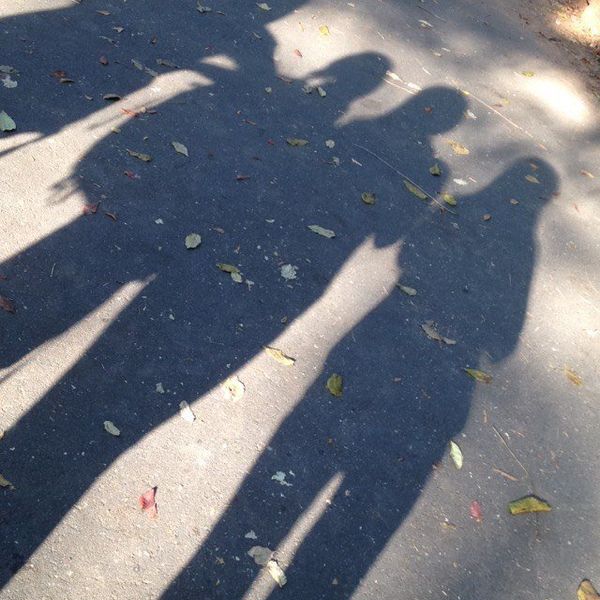I'm white.
And according to Wikipedia, so is 90.7% of my hometown, the Colorado suburb where I spent most of my childhood and teenage years. When you're surrounded by only people who look like you, you hardly even notice it. I kind of just felt like that's the way the world was. At my high school, we were overwhelmingly white, and then there was a small population of Mexican kids, an even smaller population of Asian kids, and that one group of black kids who all sat together at lunch.
We went about our days normally, learning about other races and cultures in history or English class, but we didn't really retain anything or have a feel for what it's really like to not be white, Christian, and upper middle class. We didn't know what it's like to not be the majority.
I always dreamed of moving far away and going to college in New York, and I was lucky enough to be able to make that dream a reality. My school is in the Bronx. Non-Hispanic white people make up 10% of the population. The roles have been reversed.
Here, I am glaringly aware of how white I am. We talk about things like that here. In English class on St. Patrick's Day, my teacher asked how many of us were actually Irish. When the three of us who are white raised our hands, my teacher said "Of course. All the pasty white kids." and we all laughed. In French class, I was literally the only white person. The class was made up of a few black kids, one Puerto Rican guy, a Filipino girl, and me. When we learned how to tell what our ethnicity is, everyone else knew what to say right away, but I actually struggled. How do you say "one fourth Italian, a good amount Irish, kind of Scottish and I think I'm English too" en francais?
My school bleeds diversity. When former President Bill Clinton visited us to campaign for Hillary, he told us our school "looks like a meeting of the United Nations." We have a Filipino club, a Hispanic dance team, a Filipino dance team, a Black Student Union. Walking to class in the morning from the bus, I see Dominican hair salons, Chinese restaurants, and Jamaican food places.
These are all totally unheard of back in Colorado. When I first moved here, there was definitely a bit of culture shock, but even more than that, there was excitement. I couldn't have told you the difference between Mexican and Hispanic a few months ago, but now I can not only do that but also elaborate on why being Dominican and Puerto Rican are two very different things. I had legitimately never heard of an Albanian person before moving here, which makes me cringe to even say now, because now I can tell you that Albanian people have really cool, unique names, love dancing (and have the coolest traditional dances!) and have lots of cousins.
Being somewhere more diverse has taught me so much more about myself, too. Here, cultural background is something people talk about, notice, and ask about. I've been asked by strangers what part of Ireland my family is from, because of my blue eyes and freckles. Everyone at the St. Patrick's Day parade gave me the biggest smiles, recognizing me as one of them. When people hear my last name, they tell me how much they love Italian culture. I attended the San Gennaro Feast last year and felt so immersed in the Italian culture that I hardly knew existed a year ago, even though it's part of me.
I won't lie-being part of the 'minority' can be intimidating. I don't want to come across as saying I know what it's like to be non-white, because I definitely don't and I'm not trying to-all I can speak for is my own experience. As one of a small population of white people in my school, I've spent so much time envying some of my black friend's beautiful hair and flawless skin, my Latina classmate's cute accents and natural dance skills. I feel like I stick out like a sore thumb when my blonde hair literally glows among all the glossy brunettes and I felt really uneasy buying a ticket to see The Color Purple with the black student union, afraid I wouldn't be welcome, but all of my anxieties turned out to be wasted.
Back home, many people had no idea what they were talking about when it came to even their own background. I remember many awkward conversations about slavery in class and people hissing about whether it was more correct to say "black" or "African American" and whether it was racist to say things like "Black people are great dancers."
In a more diverse setting, culture and background is not something to hide. We talk about it. We celebrate difference. We ask each other questions. I love it here. We learn so much from each other. I know this is not everyone's experience with being a minority and as a white person, I can't fully understand how this feels for people of other races. All I can say is there is a big world out there, and I urge everyone to experience it from all angles.





















